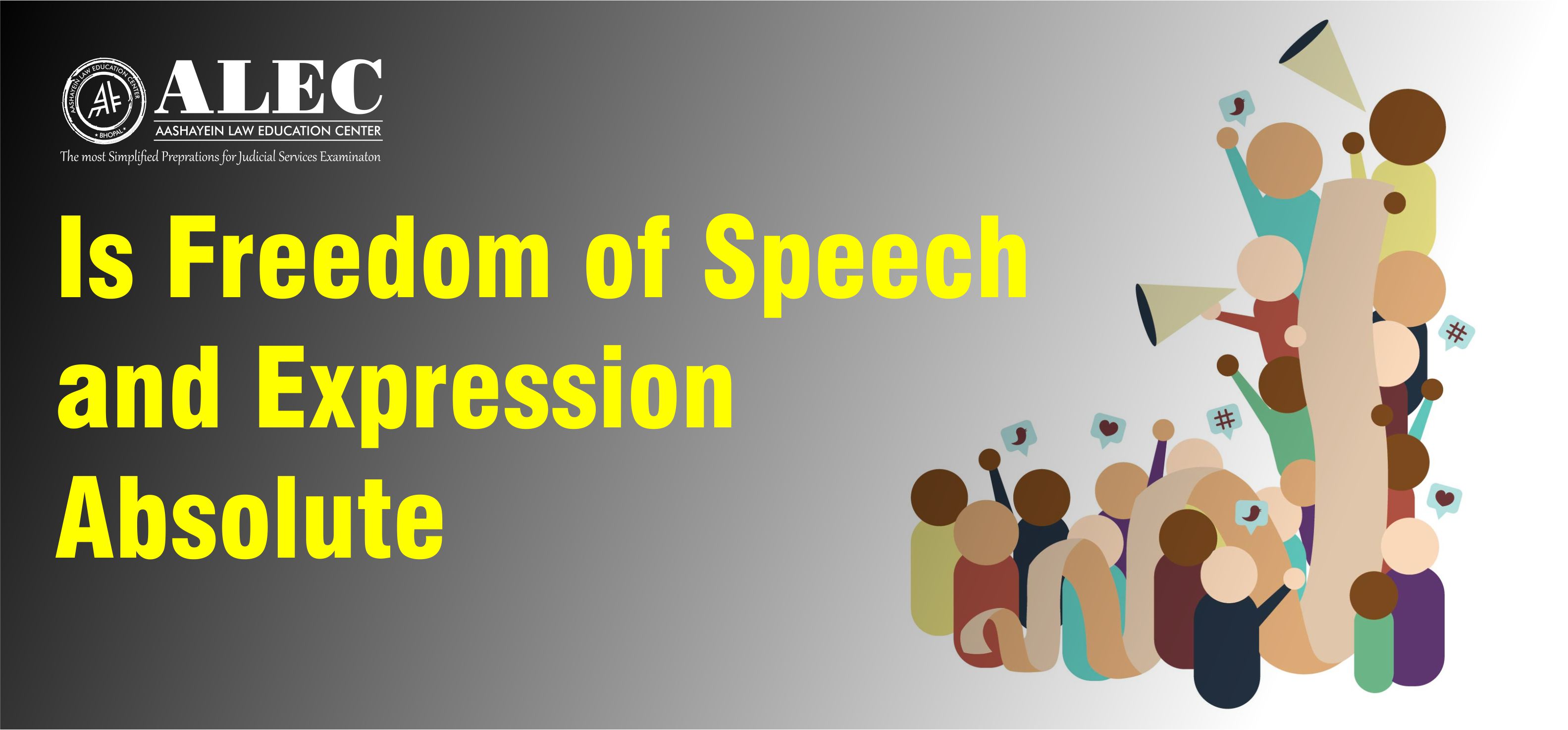The India follows the democratic form of government. In a democracy, the government is regarded as 'by the people, for the people and of the people'. The most important feature of the democratic society is the freedom of speech and expression. Every individual in a democratic setup enjoys "freedom of speech and expression" the bone of contention arises when one's freedom violates that of other's freedom. Then, what will be the solution? Whether, the freedom of speech and expression is absolute? these, questions are answered later in the article.
The Article 19(1) (a) i.e. right to freedom of speech and expression is available to every citizen of India; guaranteed by the Constitution as the fundamental right. However, the Article 19(2) of the same Article lays down certain grounds wherein this freedom can be restricted. It could be concluded, by the framing of the provision is that it is not absolute.
The freedom of speech and expression is regarded as the first essential condition of liberty in a democratic society as it facilitates free discussion. The meaning of expression "freedom of speech and expression" means the right to speak and to express one's opinion by words of mouth, writing, printing, pictures or any other manner. The purpose of Article 19(1)(a) is to guarantee citizens that they can express their ideas and opinions freely. The freedom which is guaranteed in this provision is restricted if it violates another's freedom. Justice Patanjali in the case of A.K. Gopalan v. State of Madras 1951 observed that "Man as a rational being desires to do many things but in a civil society his desires have to be regulated and reconciled with the exercise of similar desires by another individual".
You can also read the latest judgment by visiting [Latest Judgment]
For more information, visit [Aashayein Enquiry Section]
The Article 19(2) lays downs various grounds on which the restriction on "freedom of speech and expression" can be imposed which are:-
1) Security of State and the Public Order
2) Sovereignty and Integrity of India
3) Friendly Relation with Foreign State
4) Decency and Morality
5) Contempt of Court
6) Incitement to an Offence
7) Defamation
You can also read the latest judgment by visiting [Latest Judgment]
For more information, visit [Aashayein Enquiry Section]
The Constitution mentions the grounds of restriction but it nowhere mentions regarding the extent of imposition of such restriction, the Courts of India in various cases laid down that the restriction shall be reasonable and laid down guidelines for determination of reasonability which are as follows:
1) The court will determine the reasonability of restriction and not the Legislature.
2) The term reasonable restriction connotes that limitation imposed on person in the enjoyment of his right should not be arbitrary or of an excessive nature i.e. beyond what is required in public interest.
3) The criteria of reasonableness will be determined from case to case and no particular standard test could be laid down for deciding reasonability.
4) The reasonability of restriction should be considered both from the substantive and procedural points.
5) The restriction imposed for securing the object laid down in Directive Principle and State Policy may be regarded as reasonable restriction.
6) The restriction imposed must have a rational relation with the object which legislature seeks to obtain.
If the restriction fulfils aforementioned criteria then it will be regarded as reasonable.
The 'freedom of speech and expression' is very broad. It includes in its ambit, freedom of press, right to reply, right to exhibit films and censorship, freedom of silence etc. The each of these rights has separate scope. Some of these rights like 'freedom of press' are fundamental rights in countries like USA.
It could be concluded that freedom of speech and expression though fundamental in nature still not absolute so that everyone's right could be balanced and enjoyed by everyone.

